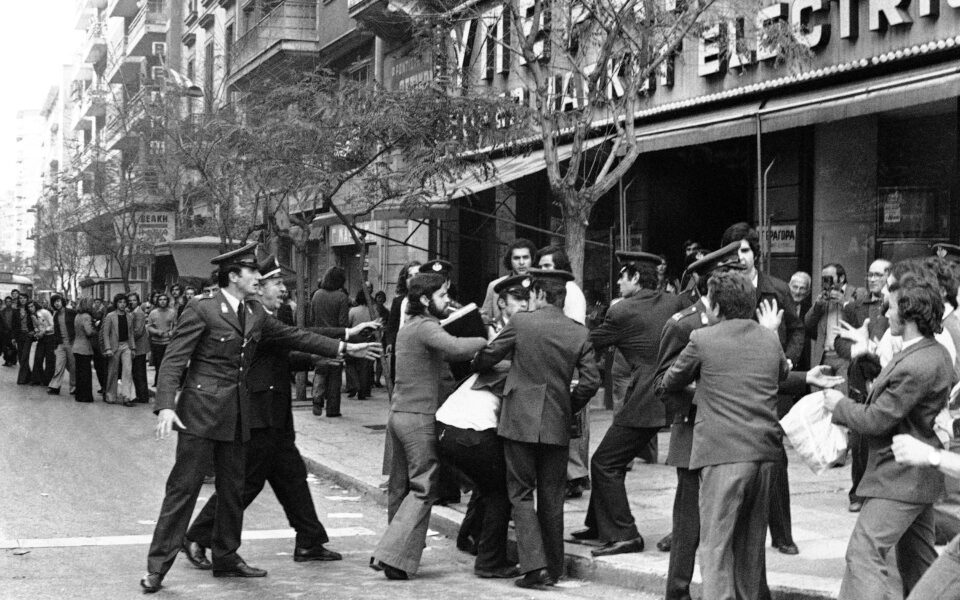A cultural premise

Greece’s so-called Polytechnic generation, those who participated in the uprising against the military junta in the early 1970s, is often associated with well-known figures who primarily pursued political or journalistic careers in the subsequent years. However, there were thousands of young men and women who played a crucial role in shaping the events and later returned to their studies and jobs while preserving the memory of those days. Their experiences during that time were pivotal in shaping their values. However, like all generations defined by a significant event, they have evolved and dispersed across a broad political spectrum over time. Therefore, the use of the term “Polytechnic generation” is twofold. On one hand, it characterizes a new political personnel (in the broad sense), and on the other hand, it denotes an age group. Nevertheless, even with the latter meaning, the term “Polytechnic generation” specifies the event itself.
Two generations primarily participated in the anti-dictatorship resistance. The first was that of outlawed organizations during the initial years, politicized before 1967, during the brief “Spring of 1960.” It was the “Lambrakis generation,” involved in Peace Marathons, protests against the assassination of left-wing MP and activist Grigoris Lambrakis, and the Iouliana (July) events of 1965. The second generation entered the political fray during the dictatorship, especially after 1971, when censorship was lifted, giving rise to numerous publications (as well as films and records/cassettes) that cultivated a new spirit of rebellion not only against the dictatorship but also against societal authoritarianism in general.
Often, when referring to cultural life during the dictatorship, we focus on prohibitions and censorship. However, after the initial numb years, beneath the formal surface, in student apartments, friendly gatherings, small theaters, and bars, a pulse was developing. This pulse became a powerful force in the two years leading up to the Polytechnic Uprising. Ideas from the European radicalism of the time (the 60s) and memories of the EAM resistance formed a galaxy of ideas and values, a new aesthetic norm, and new styles and behaviors that emerged and characterized the events culminating in the Polytechnic Uprising.
While the Polytechnic may not have overthrown the dictatorship, it created a nightmare that should not be repeated for some and opened up horizons of expectations for democracy for others. Without it, the transformation of July 24, 1974, might have been much more limited. The same generation continued to mobilize in the following years, attributing to the concept of Metapolitefsi the breadth we are familiar with.
Antonis Liakos is a professor emeritus at the University of Athens, where he taught contemporary history and theory of history.





